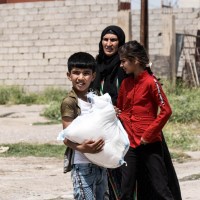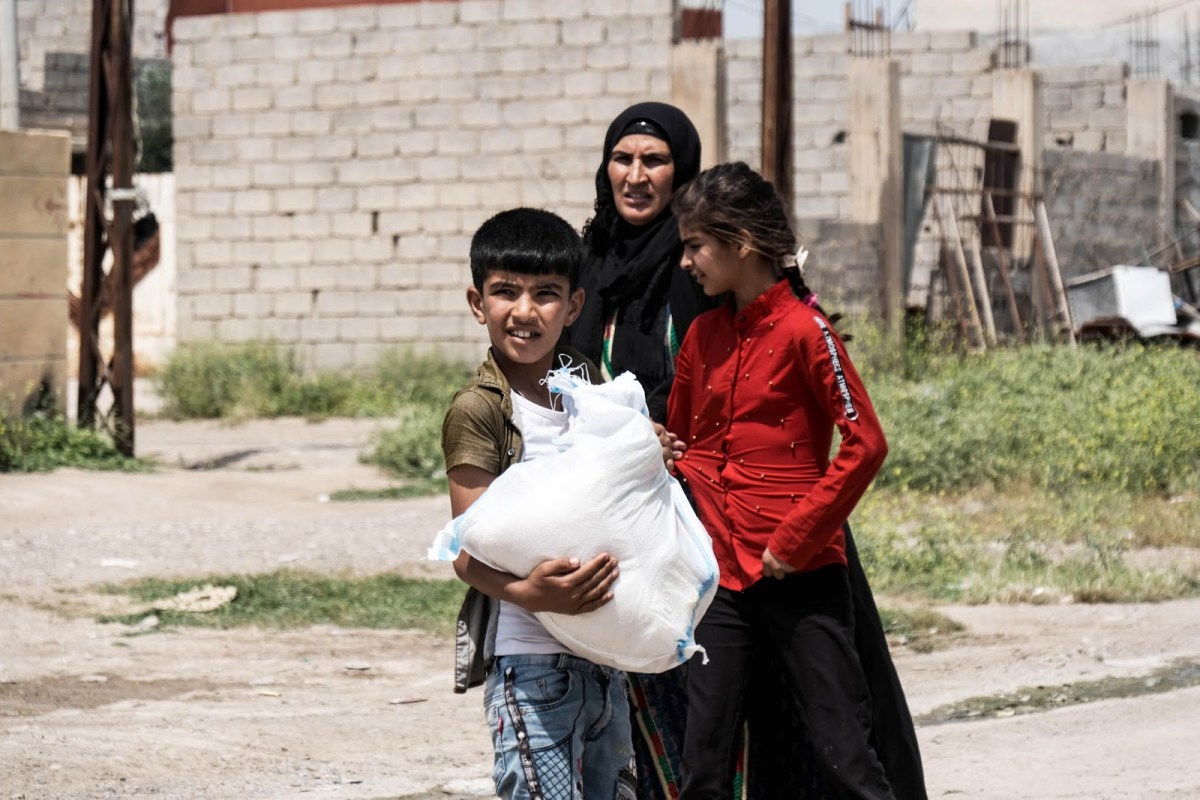Imagine a month of fasting when you’re already hungry.
That’s what the families in this Iraqi neighborhood faced.
They belong to the poorest community in their city. Many were on the brink of starvation.
When COVID-19 hit, their dire situation got infinitely worse. Cities all over Iraq were locked down, including this one. Those lucky enough to have jobs lost them when quarantine was imposed. Supply lines ground to a halt.
ISIS, still a presence here, is stepping up its terror attacks, trying to exploit the crisis.
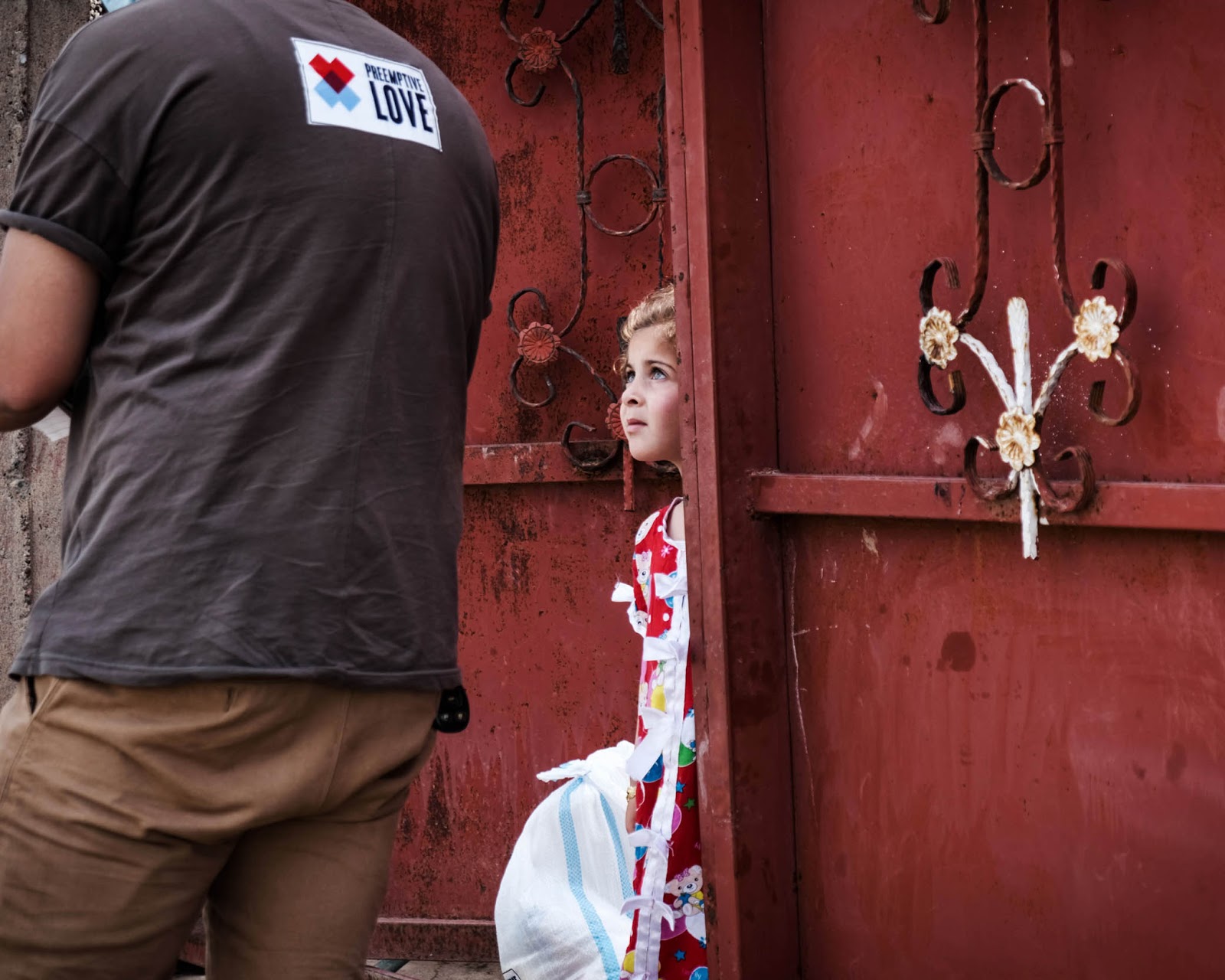
And Ramadan was approaching. The most sacred time of the Islamic year, when Muslims all over the world observe a month of prayer, daytime fasting, and gathering to feast after sunset.
But how do starving people fast?
How do they make it through the punishingly hot days without food or water, when there is nothing to nourish them after dark?
Here’s where you changed the story: You rushed 500 food packs to families who need it the most.
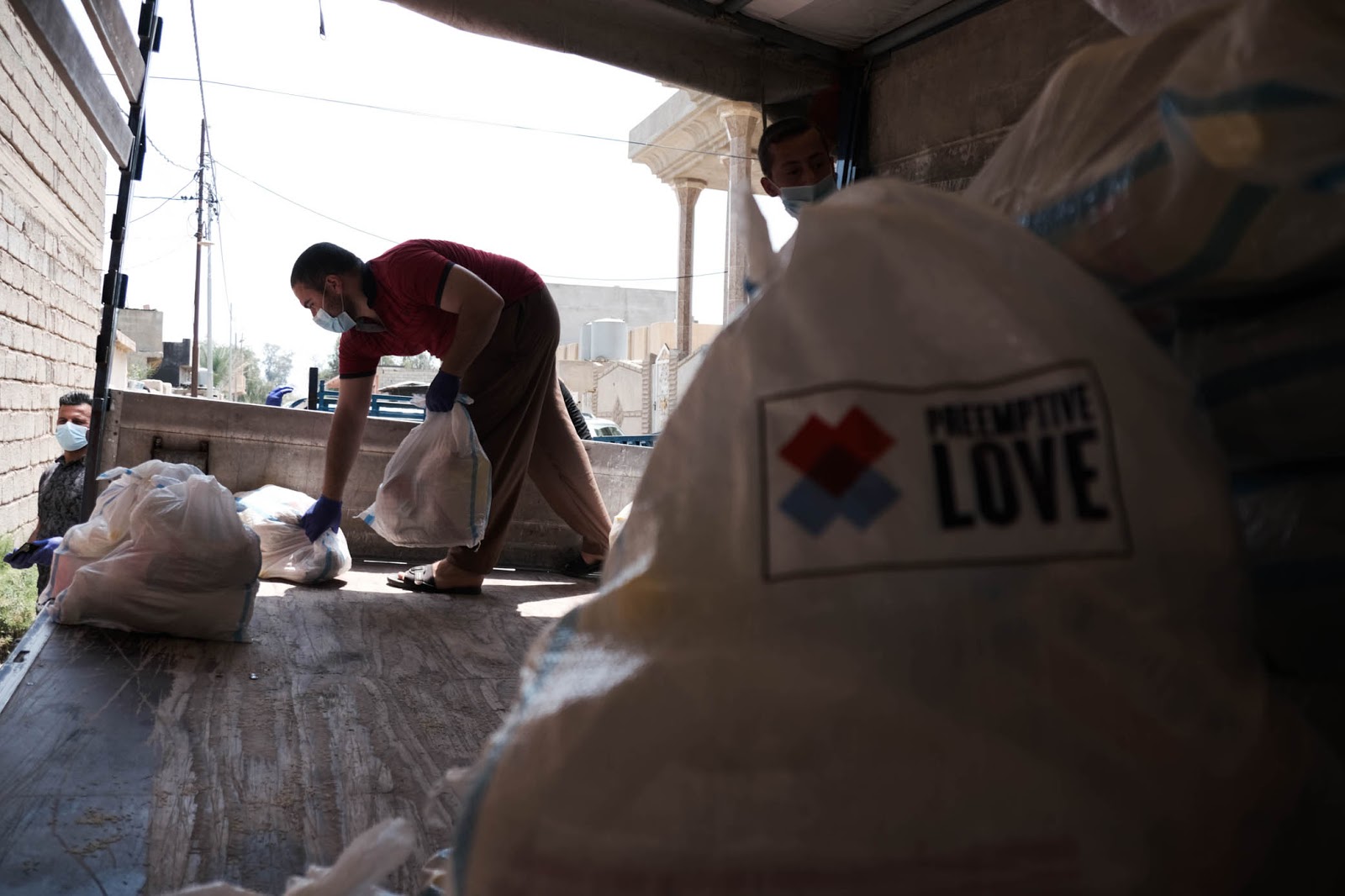
In each of these packs, the nourishing staples of the region: rice, cooking oil, bulgur, tomato paste, lentils, chickpeas.
Each pack will feed a family of 5 or 6 for up to two weeks.
If you’ve given us a one time gift, you did this.
If you’re a monthly supporter, you’ve fed almost 40,000 people so far—in Iraq alone—who were starving because of COVID-19 quarantines.
Even as the coronavirus keeps extended families apart during Ramadan, you’re giving households something to eat at iftar—the breaking of the fast.
You’re making sure no one starves—and no family has to sacrifice their most sacred rituals to hunger.
In this neighborhood of mud-brick houses, our team went door-to-door meeting those who had themselves gone door-to-door, begging so their children might eat.
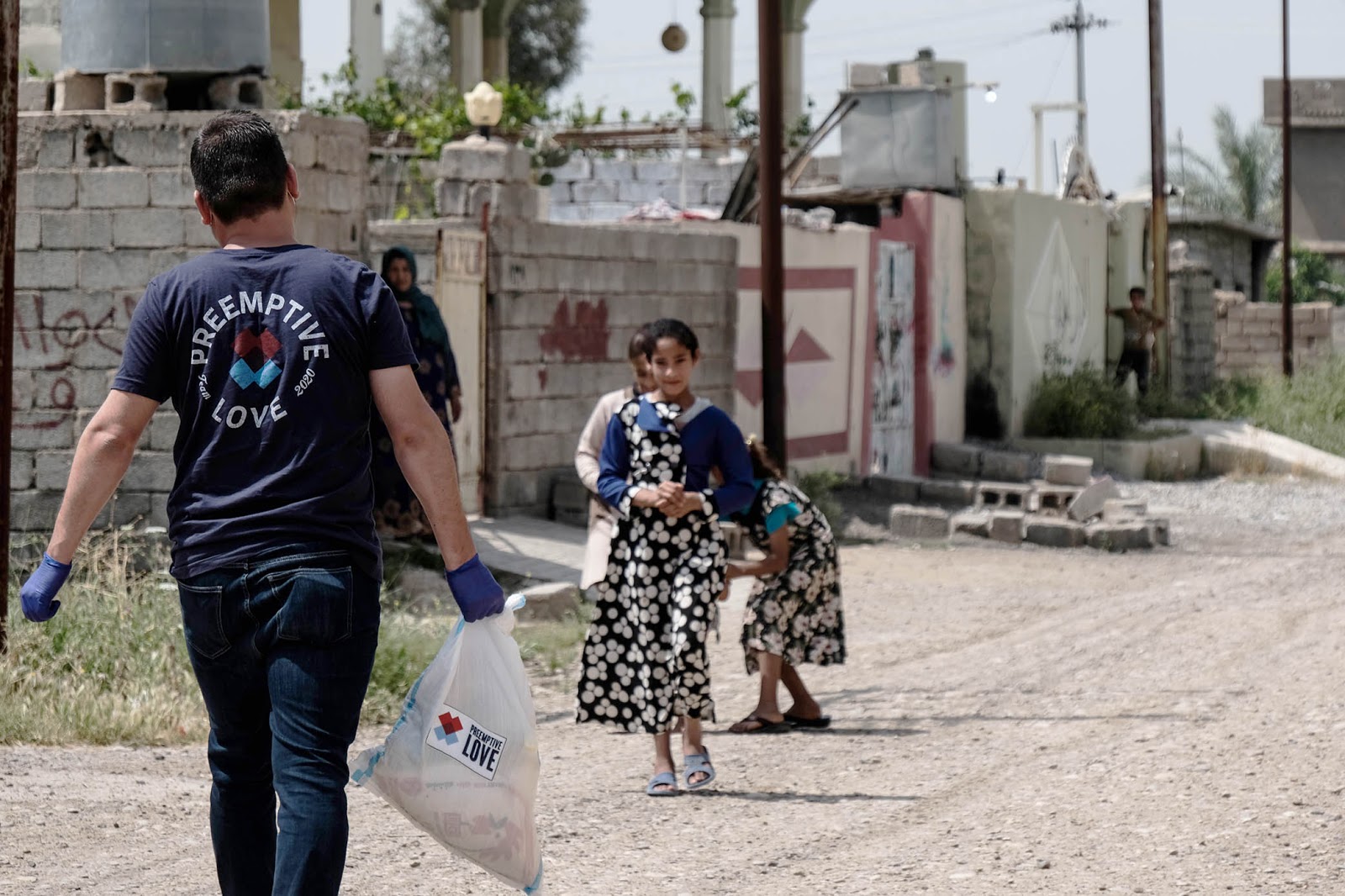
“It felt like a ghost town,” my colleague Ihsan recalled. “Houses still destroyed, very few people… the marks of war still clear on roads and buildings.”
We heard stories of disabled and special needs family members that could not be properly cared for. There were too many stories of desperate hunger.
These are the most marginalized people in the community. That’s who we seek out. That’s who we build connections with.
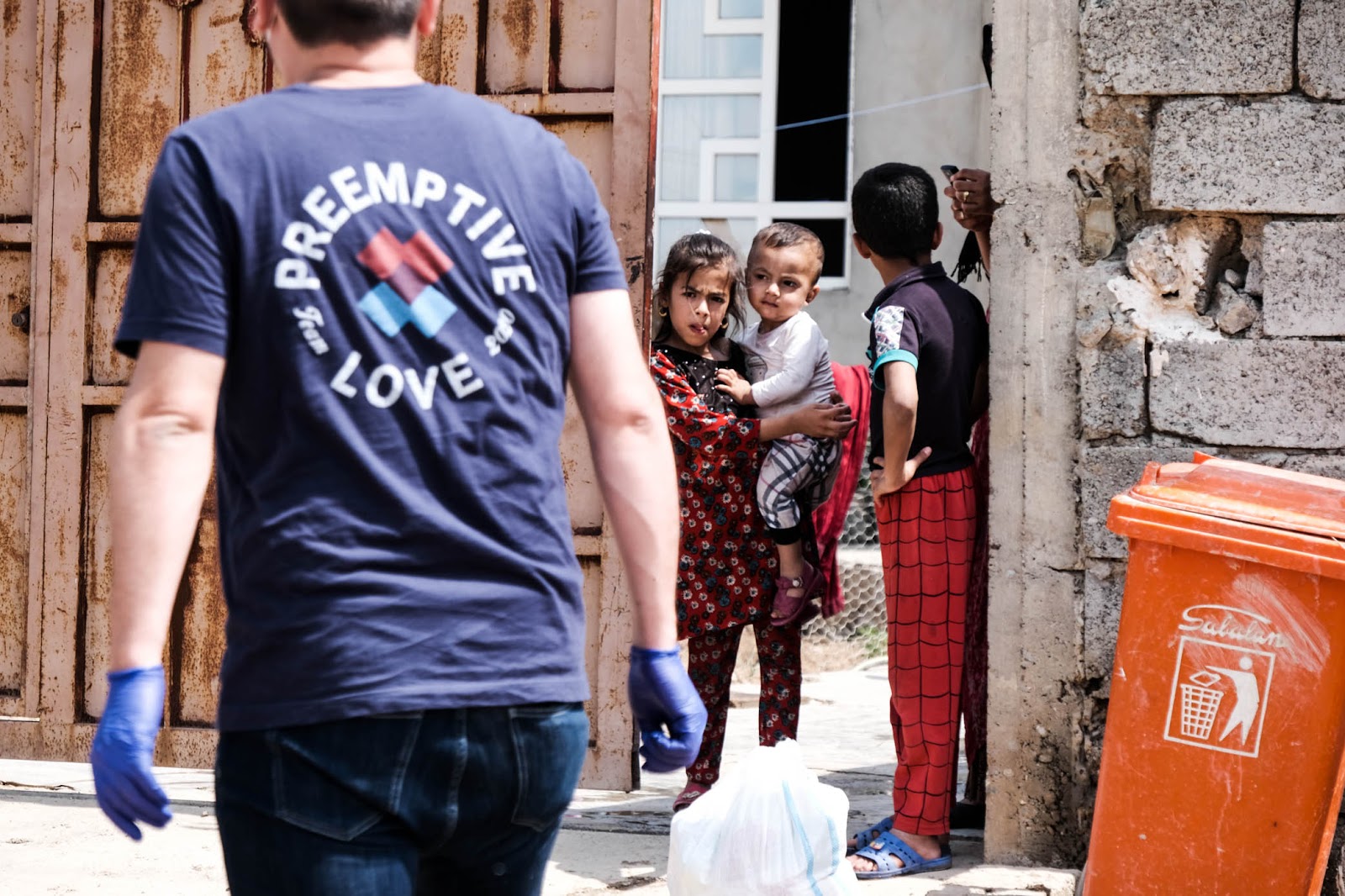
Because our work is about relationships. Relationships make it possible for us to respond fast when the need is great.
Relationship was was how we found this particular community: Dr. Ahmed, whose clinic you made possible in the early, critical post-ISIS years, asked if we could bring food to these families, because no one else would. He gathered and led the team of local volunteers who helped with the distribution.
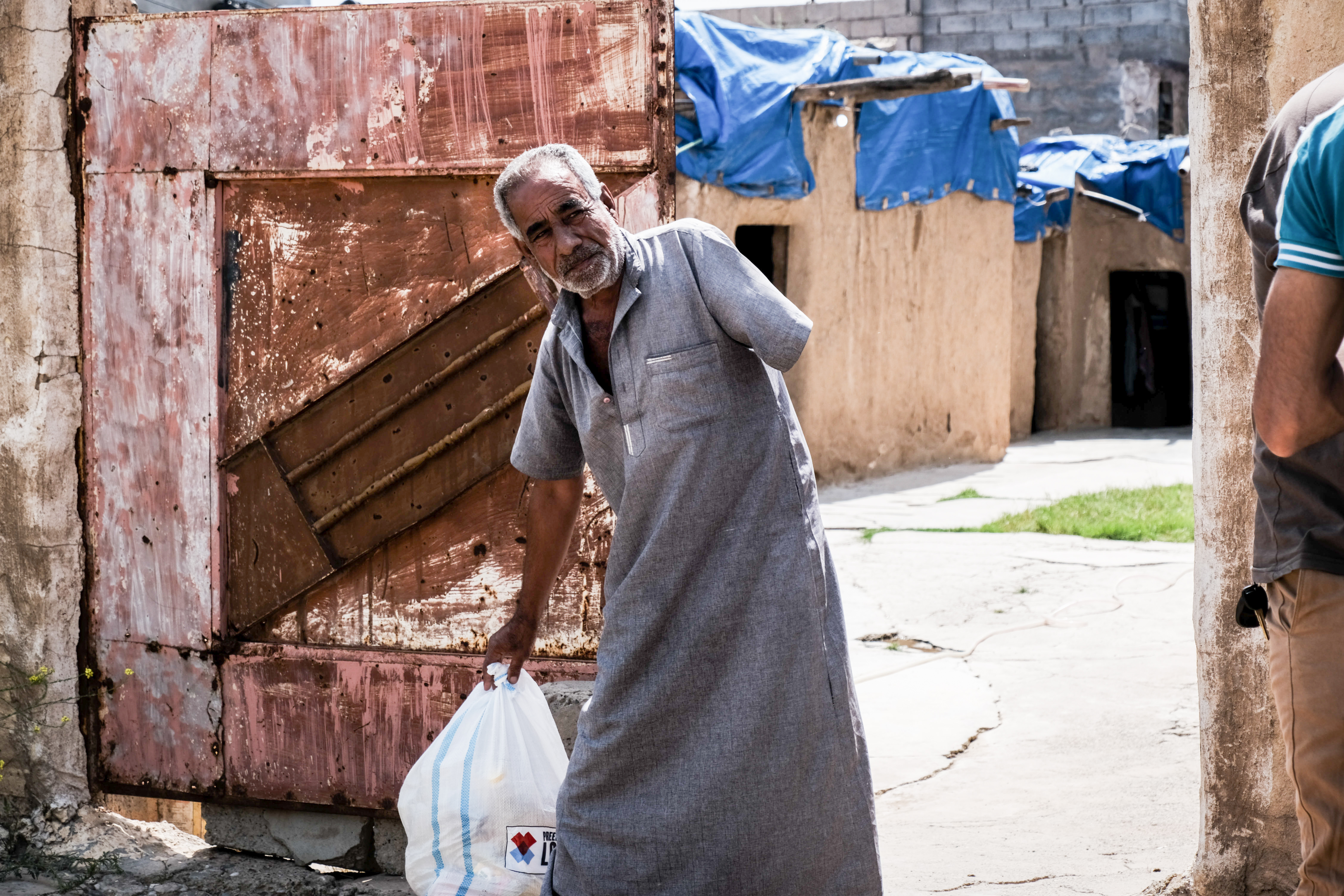
Our relationship with you that meant these 500 families have food for Ramadan, during the worst pandemic in living memory.
Thank you for loving the most marginalized communities during these unprecedented times.
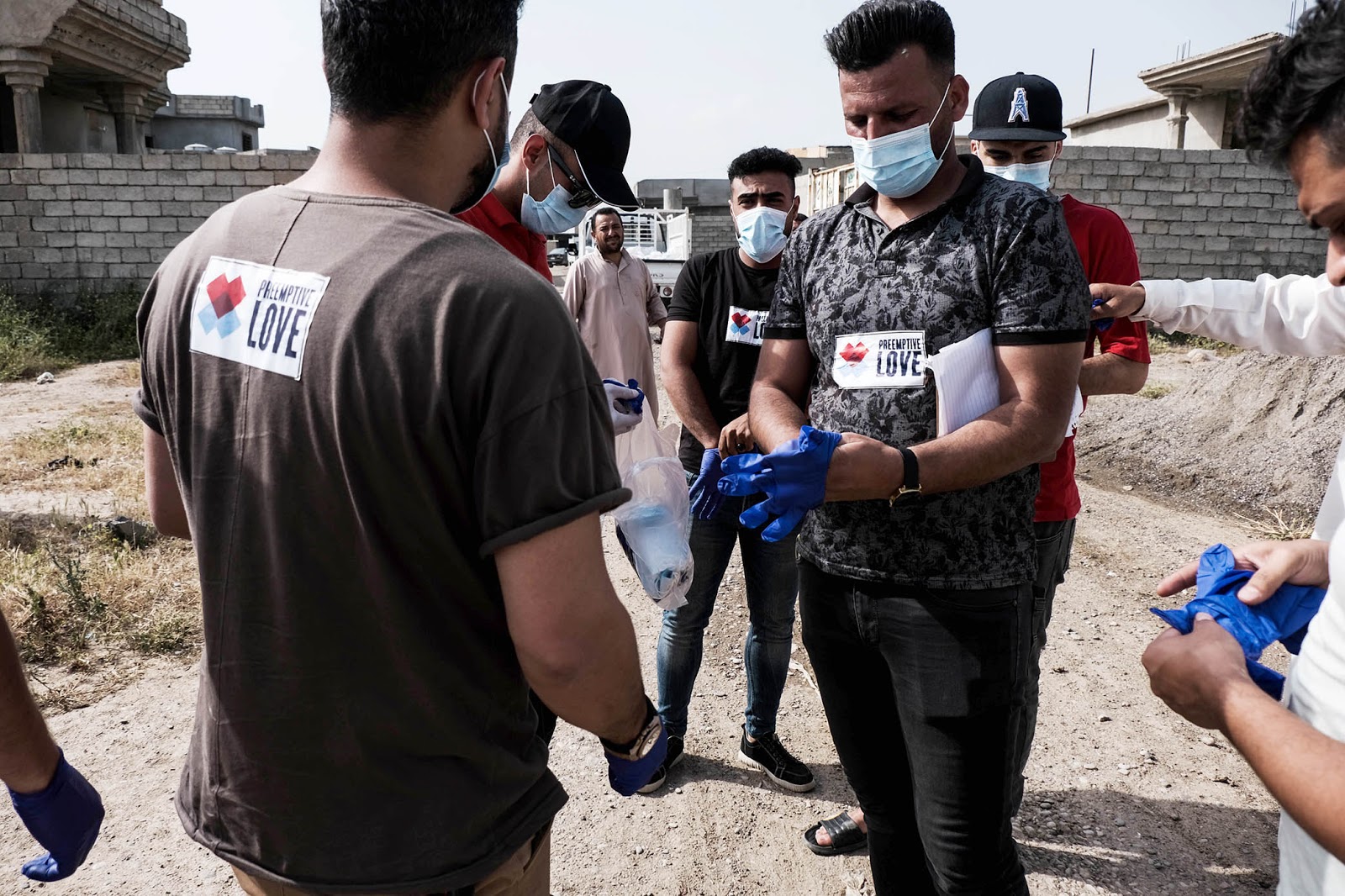
So many more communities are at risk of starvation as COVID-19 wreaks havoc on economic, health, and social infrastructures. Tens of thousands of people need to be fed today.

